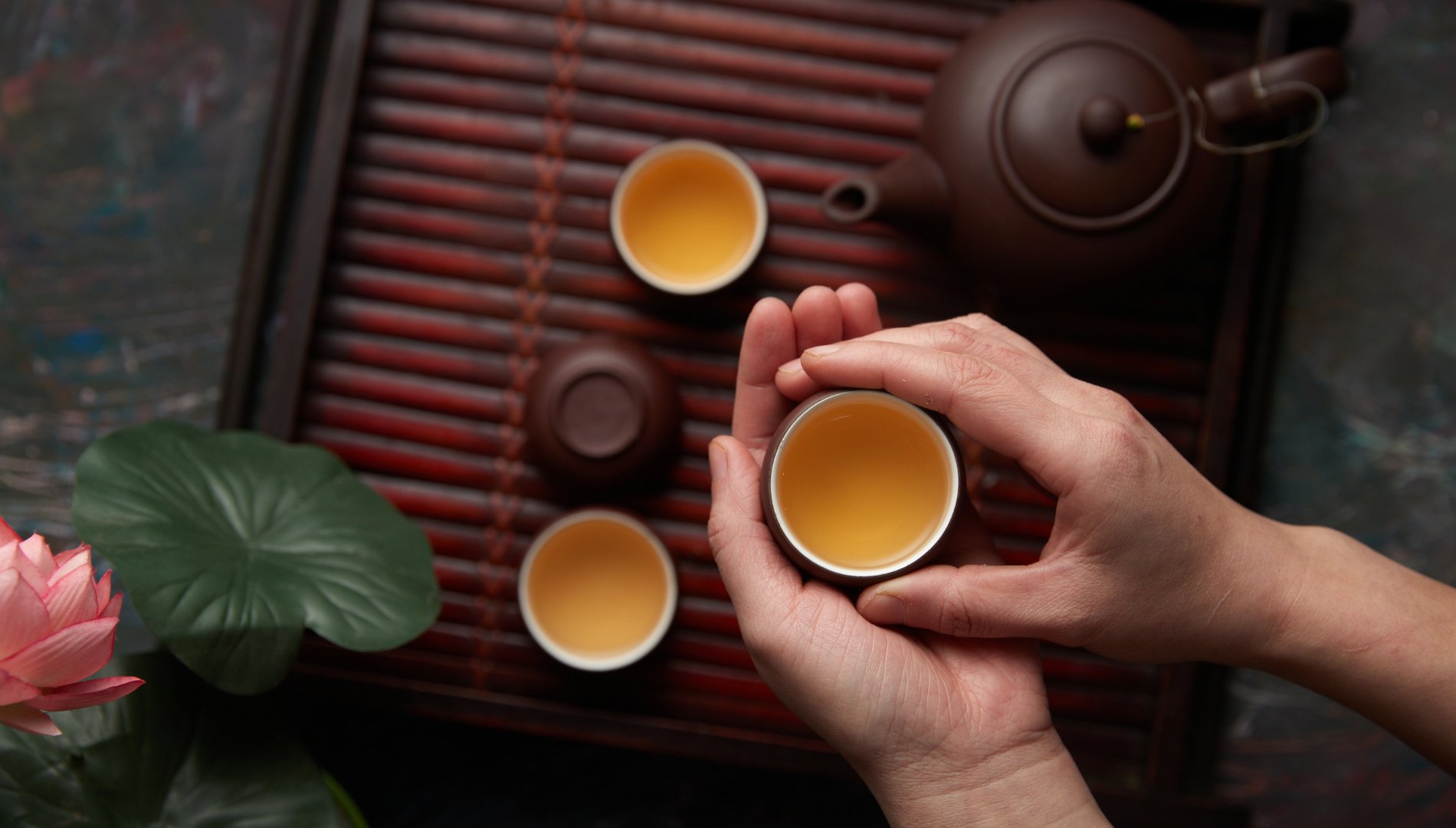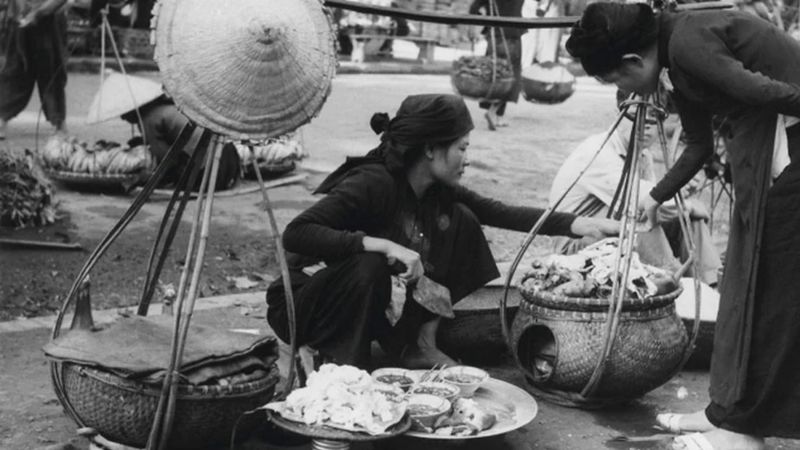"There's gold, and here's some black copper too."
"There are honeysuckle flowers, and here are West Lake lotus flowers..."
Lotus-infused tea is not just a beverage, but an art form, a quintessential cultural tradition of Hanoi. The magical blend of the refreshing astringency and sweet aftertaste of green tea with the pure, delicate fragrance of lotus flowers has created a "specialty" that embodies the soul of the capital city.
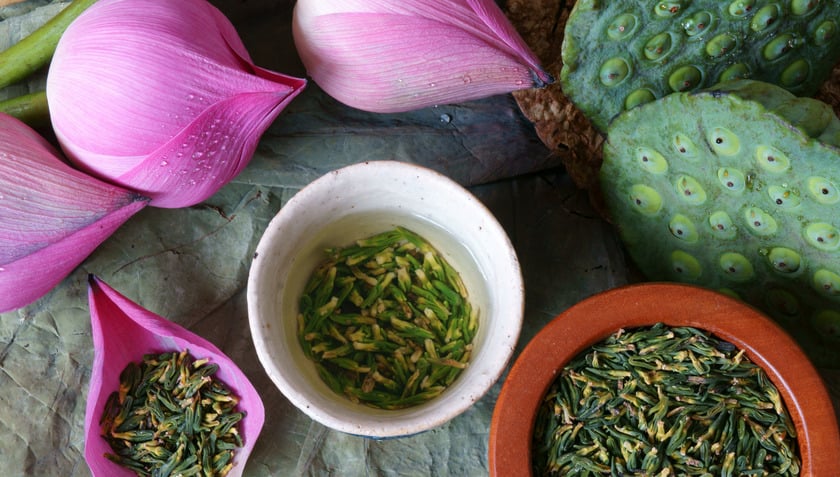
In the past, Hanoi families would often personally infuse lotus tea to give as gifts or to entertain honored guests during the traditional Lunar New Year. Now, lotus tea has become a symbol, a unique gift that encapsulates the flavor and spirit of Hanoi, sought after not only domestically but also internationally.
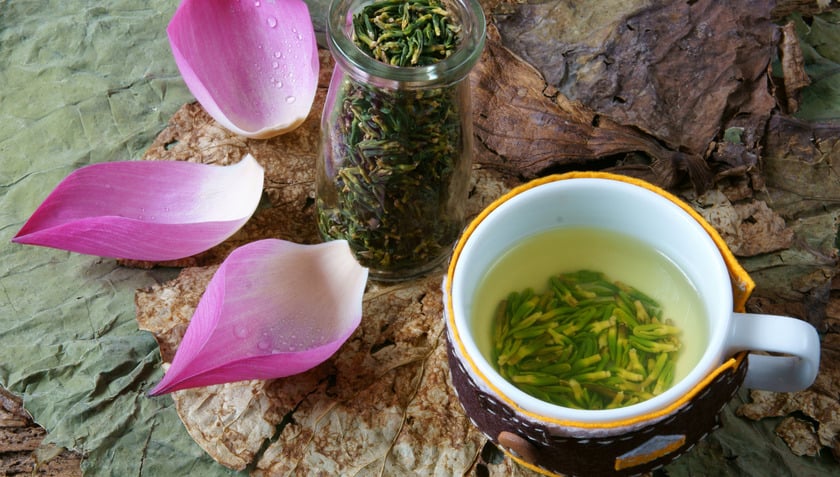
It's no coincidence that Hanoi lotus tea is known as the finest tea.
The essence of ancient culture
No one knows exactly when the art of infusing tea with lotus took root and became an indispensable part of Hanoi's culture. Elderly people often recount that the West Lake area, especially the Tay Ho district, was once a vast lotus pond. It was from these expansive lotus ponds, along with the skill of the people, particularly those living in wards like Quang An and Nhat Tan, that the art of infusing tea with lotus was formed and developed. They chose the renowned Thai Nguyen green tea to combine with the hundred-petaled lotus (also known as the hundred-petaled lotus) characteristic of West Lake, thus giving birth to the "finest tea of all time," known as West Lake lotus tea or Tay Ho lotus tea.
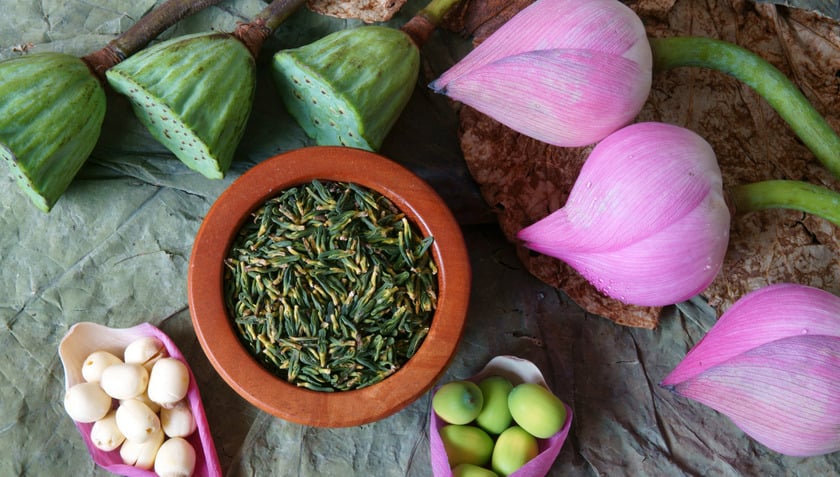
To produce 1kg, the artisan needs 1000 lotus flowers and must go through 7 stages of marinating with a very elaborate and meticulous process.
Although many places now produce lotus-infused tea, no region can replicate the distinctive and unique flavor of West Lake lotus tea. It seems that all the essence of the land, the climate, the water source, and the soul of the people of Hanoi have converged in each tea leaf and each lotus fragrance of this region.
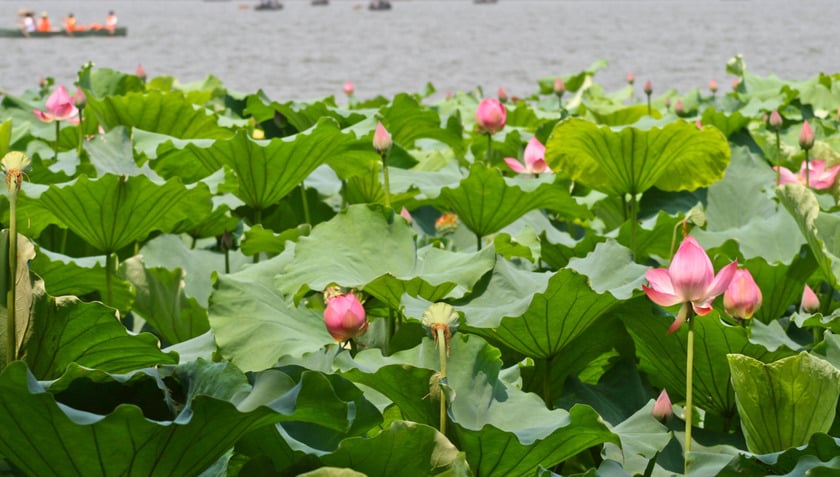
West Lake lotus tea is a blend of the rich flavor of Tan Cang tea (Thai Nguyen) and the fragrant aroma of Bach Diep lotus rice. Through the skillful hands of artisans, a delicious and refined tea has been created.
Around June, when the lotus ponds begin to bloom, the families of lotus tea artisans in Quang An and Nhat Tan wards enter their busiest season. According to experienced artisans, creating a batch of premium West Lake lotus tea requires a significant investment of time and effort. The lotus flowers selected for infusing the tea must be those grown in the ponds of Quang Ba village, characterized by their pale pink petals and just-opened buds, ensuring the richest aroma.
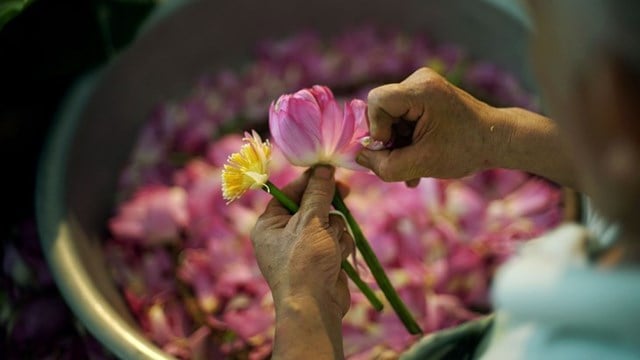
The lotus flowers are picked early in the morning, while still slightly dewy, to ensure freshness and preserve their fragrance.
The process of infusing lotus tea is a series of meticulous steps. Lotuses are harvested early in the morning, when the flowers are still fresh and covered in dew. They are then brought back, and each petal is peeled away to extract the lotus seeds – the part considered the "fragrance sac" containing the essence of the flower. Extracting the lotus seeds is the most difficult step, requiring exceptional speed and skill to prevent them from breaking and losing their precious aroma.
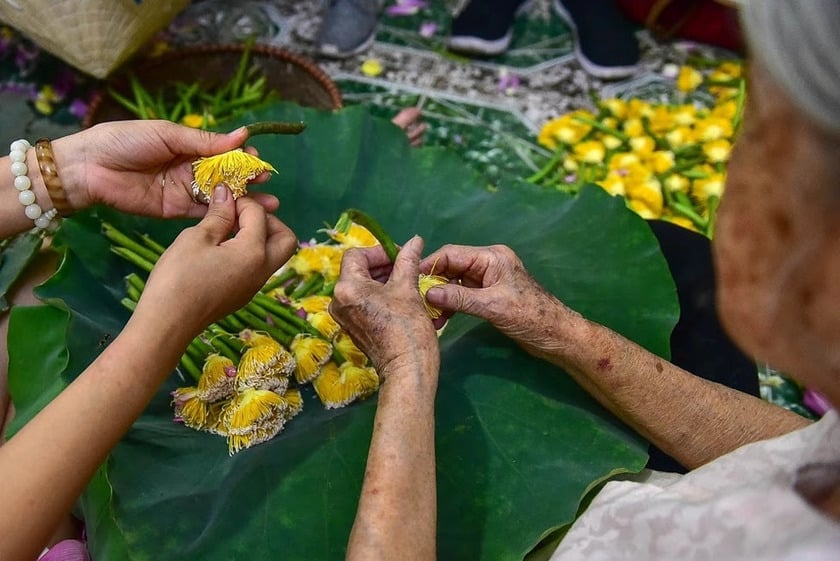
Harvesting the lotus rice is the most difficult step; the artisan must be skillful and quick-eyed to prevent the rice from being crushed and to preserve the distinctive aroma of the lotus.
On average, to infuse one kilogram of tea using the traditional method, 1,000 to 1,400 lotus flowers are needed. Each layer of tea is sprinkled with lotus rice, then left to steep for about two days before being dried. This infusion and drying process is repeated 5 to 7 times, lasting one to two weeks, to ensure the lotus fragrance permeates each tea leaf, creating a premium beverage with a long-lasting flavor.
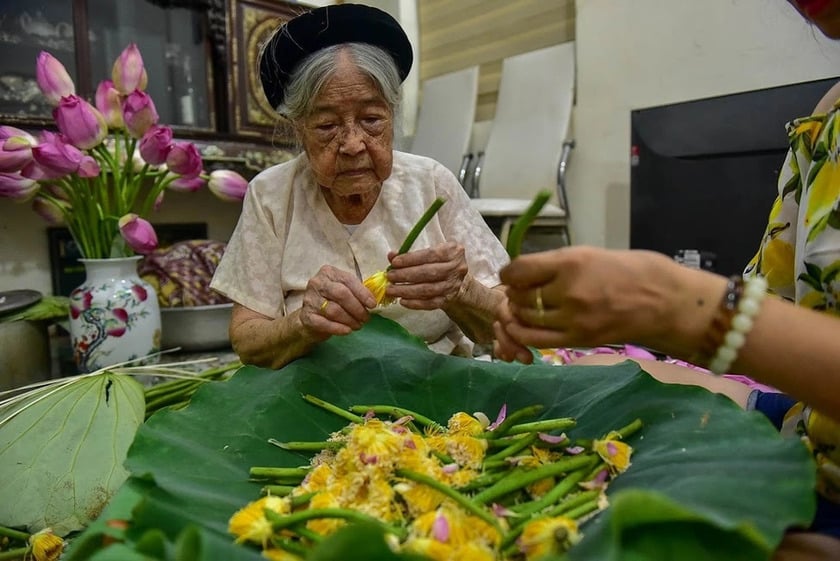
To ensure quality, the artisan only infuses the tea in the morning.
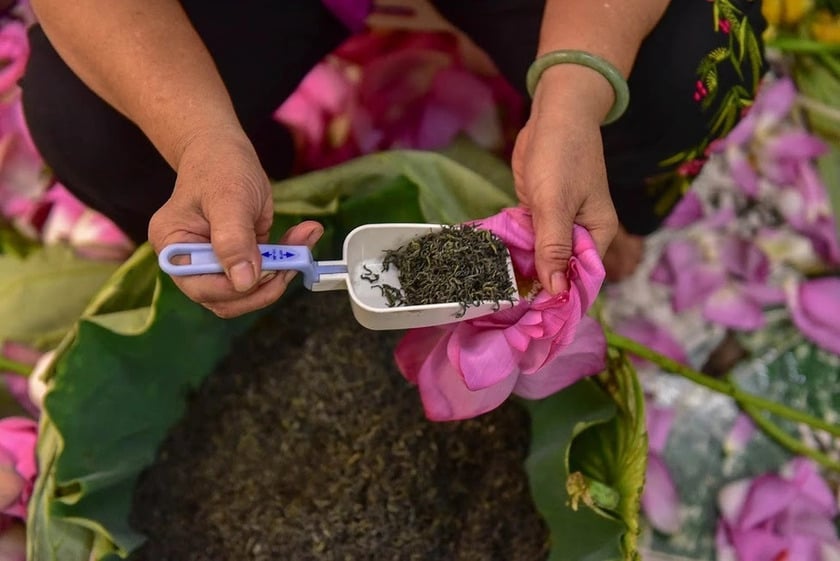
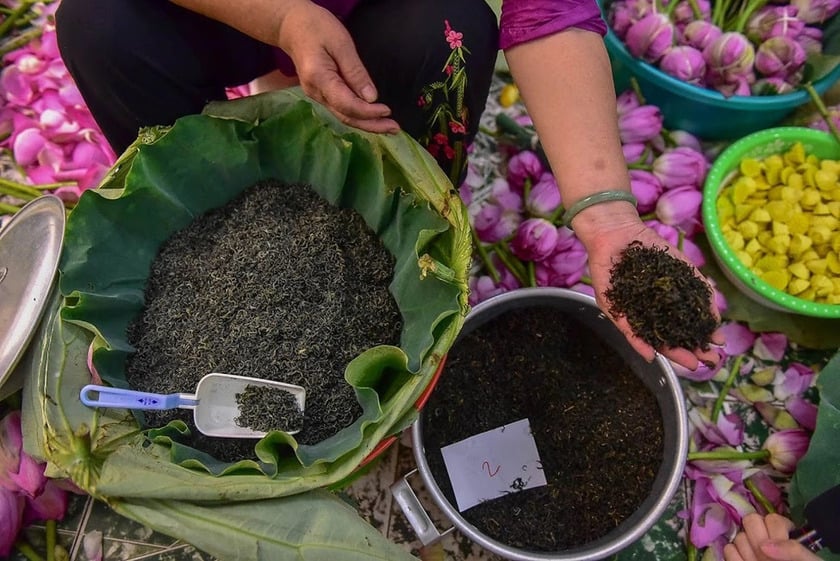
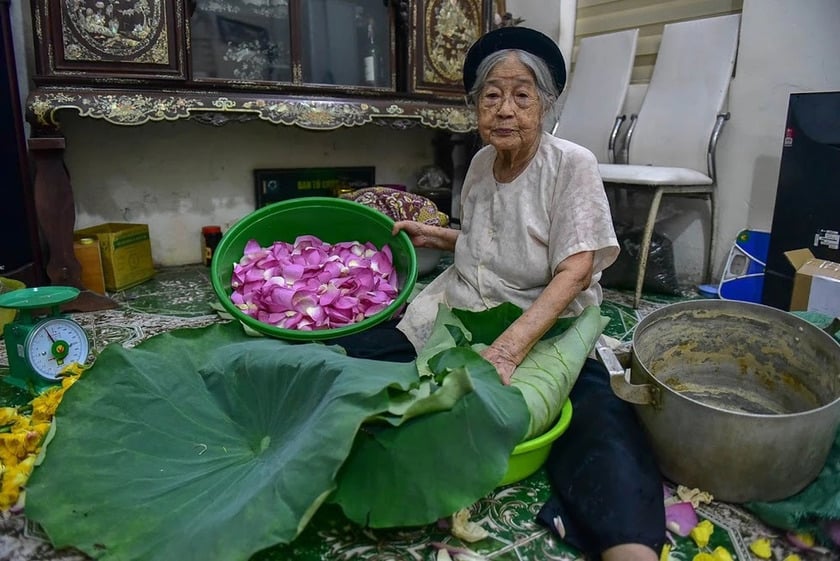
The elegance of the people of Hanoi
Due to its meticulous and complex processing method, West Lake lotus tea is considered one of the most expensive teas on the market. A kilogram of premium lotus tea can cost up to 7-10 million VND, while tea directly infused in lotus blossoms (also known as "quick-infused" lotus tea) is more affordable, ranging from 30-50 thousand VND per blossom, equivalent to 3-5 million VND per kilogram. However, due to the manual and time-consuming process, the quantity of traditional lotus tea is limited, making it a rare and precious gift. "Quick-infused" tea is more readily available and accessible on the market.
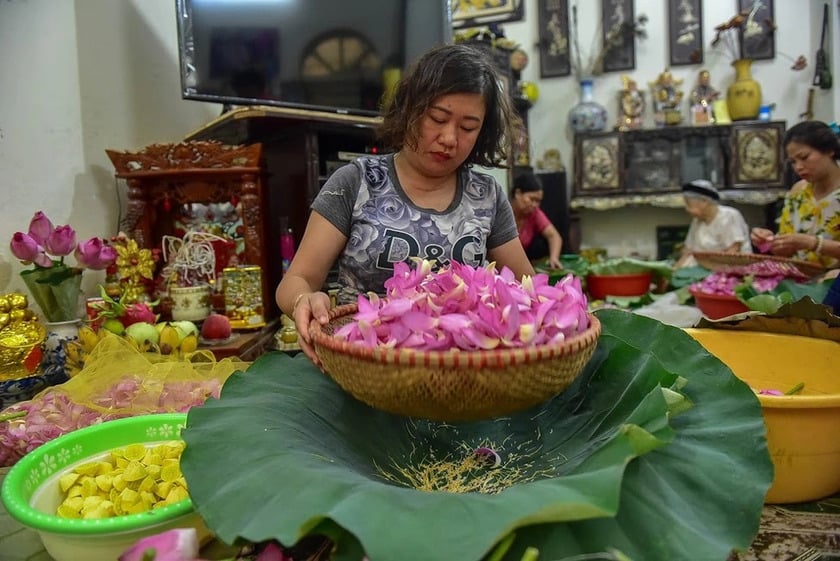
The process of infusing tea with lotus requires seven stages. Each stage involves alternating layers of rice and tea leaves, and after each infusion, the tea is dried.
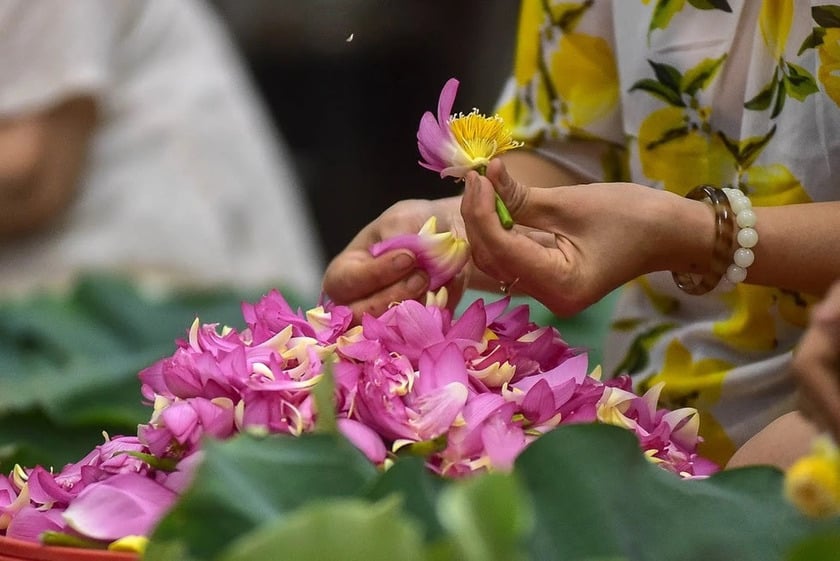
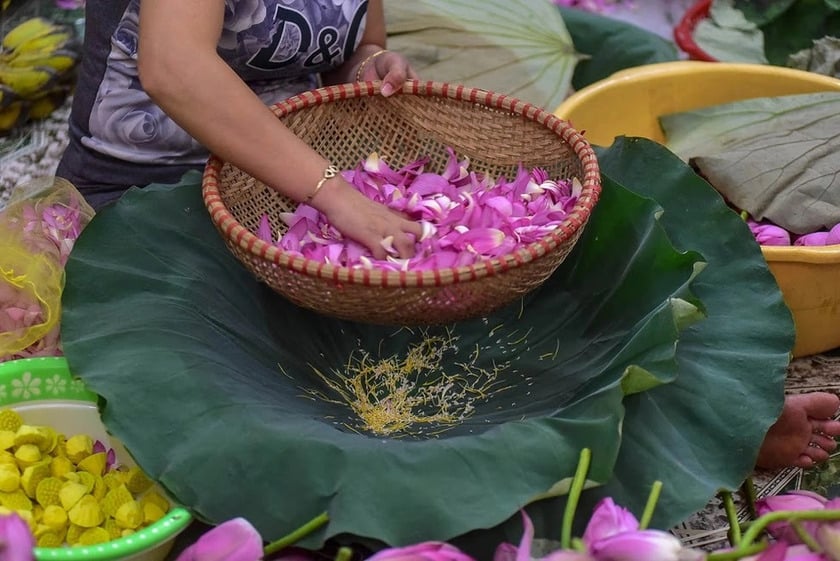

Drinking lotus tea is also an art, requiring meticulousness and sophistication, just like the way it is made. In the past, people often used rainwater or morning dew collected on lotus leaves to brew tea, demonstrating their absolute respect for nature. When enjoying tea, they would often sit under a quiet eaves, gazing at the vast, verdant lotus pond, to fully appreciate the flavor and the atmosphere.
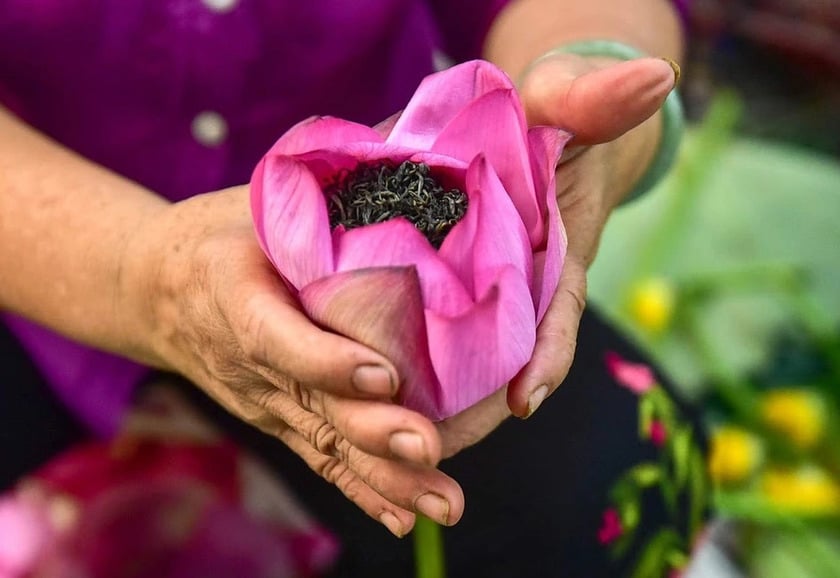
Due to the meticulous and elaborate production process, entirely done by hand, the quantity of lotus tea produced annually is limited. Therefore, lotus tea is very expensive on the market and usually requires early ordering.
Today, despite changes in living spaces, tea connoisseurs still adhere to fundamental principles. The water used for brewing tea is typically tap water that has been left to settle for a day and a night to release its moisture. The water used for brewing tea must be just right, with only a slight ripple of bubbles, and the best teapot is a porcelain one to preserve the pure flavor. A properly brewed and infused lotus tea will offer a subtly sweet and astringent taste, with the lotus aroma gradually deepening in the mouth, spreading in a captivating way.
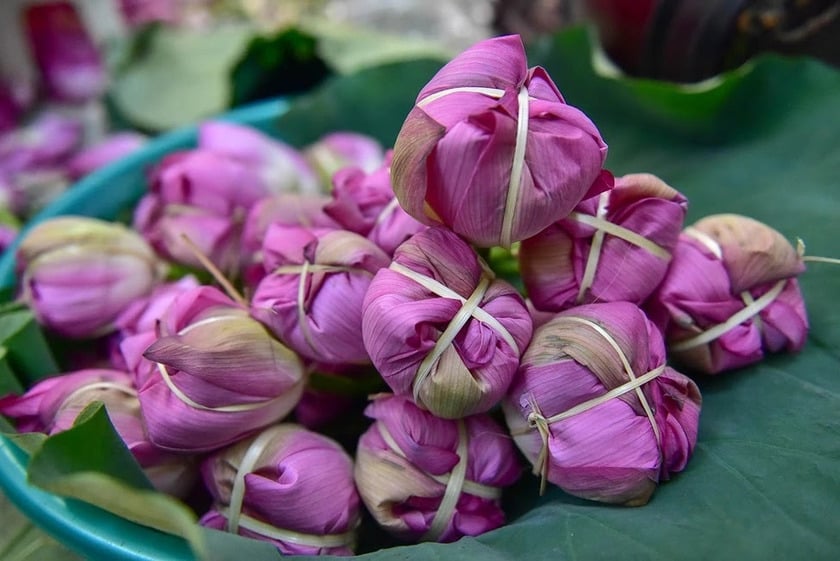
The craft of making lotus tea is seasonal, elaborate, and labor-intensive, so currently in Hanoi, the number of artisans dedicated to this craft can be counted on the fingers of one hand.
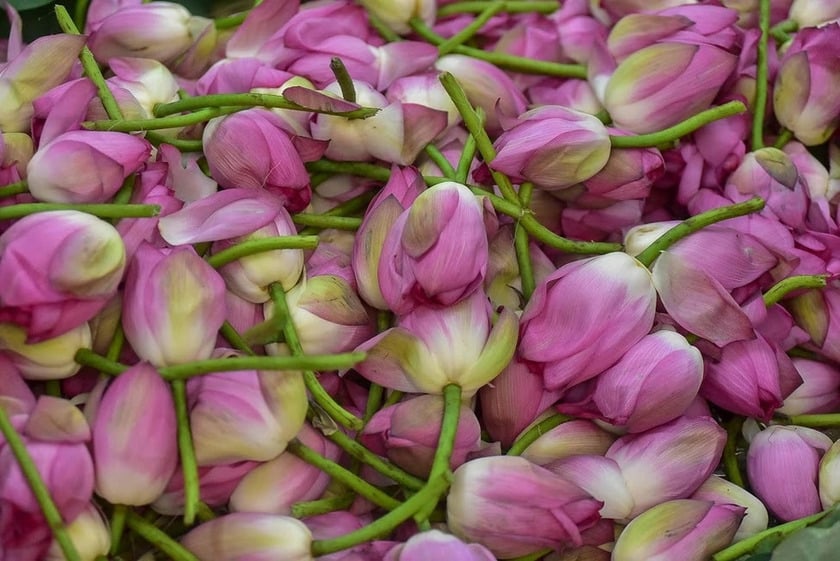
Therefore, despite being one of the most expensive teas on the market, not everyone with money has the "opportunity" to enjoy this premium tea, often referred to as "the finest tea."
During holidays, special occasions, or simply the early days of summer, nothing is more wonderful than gathering with family and friends, raising a cup of lotus-infused tea. Sipping each sip, appreciating the delicate, fragrant essence in every drop, and enjoying the scent of the lotus flower amidst the spring air, one feels relaxed, joyful, and warm. Lotus tea is not just a beverage, but also a cultural experience, a thread connecting people to the beautiful traditional values of Thang Long, a land of thousand-year-old civilization.

 VI
VI EN
EN



